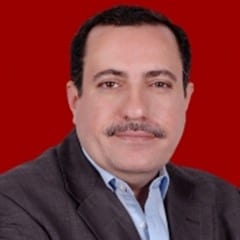Children remain at the heart of the struggle in Israel-Palestine. But while settlers’ terrorism organised and sponsored by the regime in Tel Aviv, the Palestinian resistance is the product of individuals.
Last Thursday, Mohammad Tareq Yousef, from the Palestinian village of Kobar (northwest of Ramallah), entered a settlement called Adam (southeast of Ramallah and al-Bireh) and stabbed a group of settlers before being killed. Isreal responded immediately with a round of assaults and home demolitions in Kobar.
This same village produced a young man named Omar Al-Abed who carried out a stabbing last year in a settlement called Halamish.
Moreover Adam settlement also produced the group of settlers who kidnapped Mohammad Abu Khudair (16 years old) from Jerusalem and burned him alive, killing him in July four years ago.
At least two minor settlers, under the age of 18, from this settlement participated in this crime. A year later, also in July, the Dawabsheh family home, in the village of Duma, south of Nablus, was set on fire.
Read: Scotland’s ‘Braveheart’ pension fund divests from Israeli bank
The father, mother and 18-month-old Ali were burned alive. One of the settlers convicted in the case was under the age of 18.
The settlers from the Adam settlement were put on trial, but nothing happened to the settlement itself. Instead, there has been extensive construction, road networks, tunnels, and fortification in and around it. After Mohammad Tareq’s stabbing, the Israeli Defence Minister, Avigdor Lieberman announced the creation of 400 settlements as a response.
When Omar Al-Abed carried out his stabbing last year (during the same week as Mohammad Tareq’s), he was 19 years old. The Israeli forces carried out some raids in Kobar. Trenches were dug in the streets to prevent access to the village. In addition to this, his family’s home was demolished, dozens of settlers attacked Kobar with support from the Israeli army. (Of course, nothing of the sort occurred in Adam or to those who killed the Dawabsheh family).
In response, the people of Kobar and its surrounding areas confronted the army and settlers with their bare hands. Young Mohammad Tareq was likely one of those who experienced the raids and faced them.
It is unclear why he chose the Adam settlement, which is far from Kobar and is difficult to infiltrate. Was it to avenge Abu Khudair?
This week, the media published a picture of dozens of Jewish settler children wearing uniforms, jumping, and performing provocative movements to celebrate the settlers’ takeover of an Arab house in the city of Hebron.
If you go to settler areas in Hebron, you will find settler children (some of their parents who immigrated from the United States) playing under the guard of Israeli soldiers 24 hours a day, and the children themselves attack their Palestinian surroundings.
This week Ahed Tamimi, who is not yet 18 years old, was released after she became a symbol of peaceful resistance against the occupation. If you search for photos of the children of Hebron, you will find videos, or see first-hand if you go to the city, an endless number of cases of arrests of children under the age of 10 (not only under 18), or their physical abuse by soldiers and settlers.
There are settler organisations and systems backed by the army that provide protection and support to their families and settlements. They are a form of collective punishment against the Palestinians. On the other hand, there are individual reactions and responses by Palestinian children and youth, despite collective punishment.
There is a settlement organisation backed by clerics known as the Hilltop Youth, and its mission is to attack the Palestinians. In addition to this, the children of settlers have organisations that raise them to kill collectively. While Palestinian children respond individually, their surrender is unlikely, and the worst is yet to come.
The views expressed in this article belong to the author and do not necessarily reflect the editorial policy of Middle East Monitor.


![Palestinian teenager Ahed al-Tamimi (C) holds a press conference with her mother Nariman Tamimi (not seen) and her father Basil Tamimi (not seen) in Nabi Salih village of Ramallah, West Bank on 29 July, 2018 [Issam Rimawi/Anadolu Agency]](https://i0.wp.com/www.middleeastmonitor.com/wp-content/uploads/2018/07/20180729_2_31683899_36027894-scaled.jpg?fit=1200%2C800&ssl=1)









